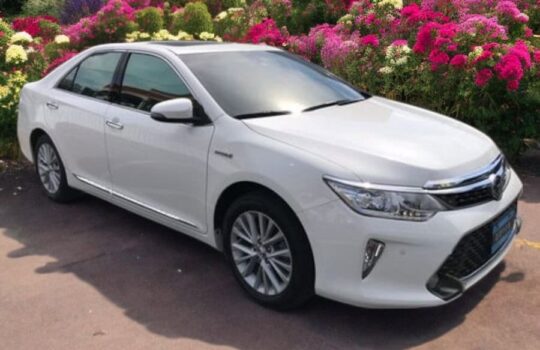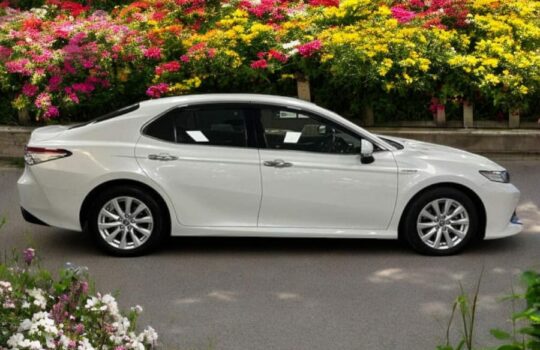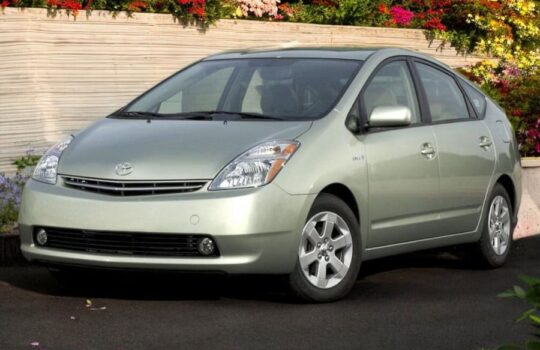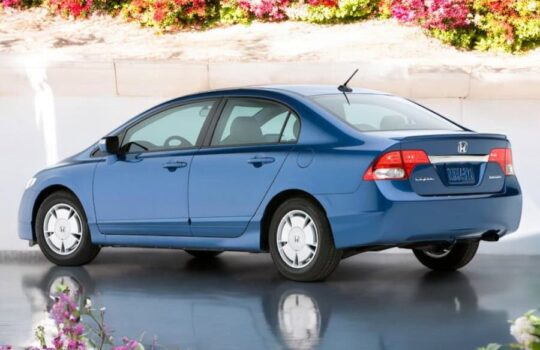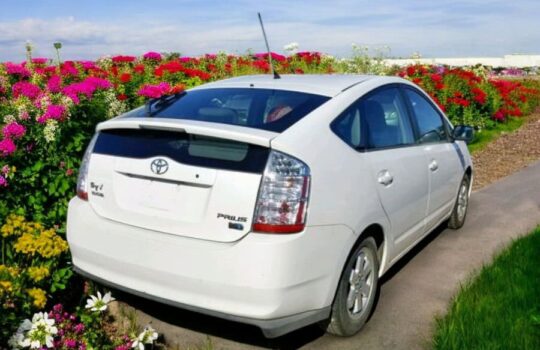How Much Does a Toyota Prius C Hybrid Battery Replacement Cost?
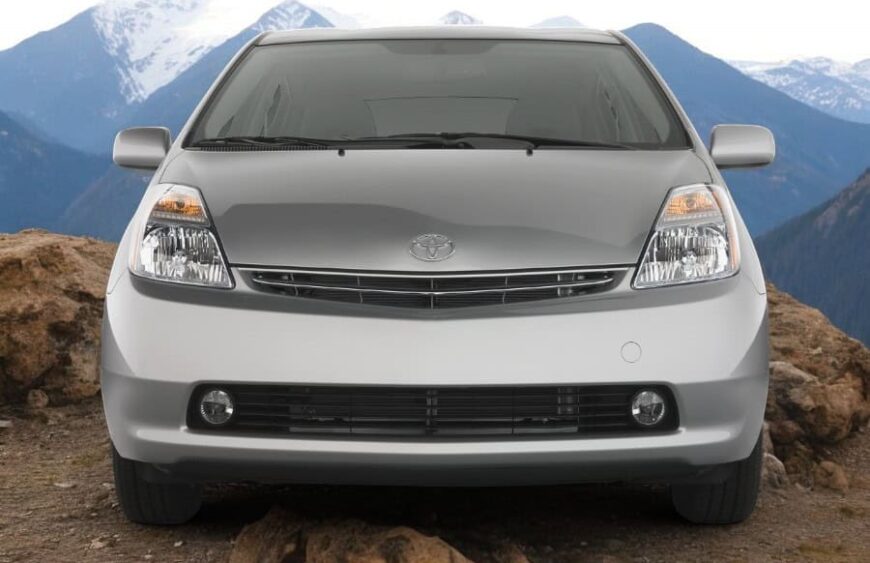
Proper maintenance of your car’s hybrid battery should extend its lifespan for many years; however, eventually, it may need replacing. How much does a new hybrid battery cost? The good news is that you can find one for less than $500, making it an affordable investment in the long run.
The Toyota Prius C is not just a hybrid vehicle; it’s an outstanding one. It provides great fuel economy and is compact, making it easy to park. Its reliability is a testament to Toyota’s commitment to quality.
Cost
Toyota released the Prius hybrid car in 1997; since then, it has become one of the world’s most beloved hybrid vehicles. It even helped set trends in hybrid production today! But just like any part of your vehicle, eventually, its battery needs replacing. Costs for this process will depend on both make/model and location factors; however, our service offers fair price estimates for Toyota Prius C Hybrid High Voltage Battery Replacement Services.
As soon as a hybrid battery begins to fail, you will notice that its charge indicator no longer always shows full charge and that its energy output has decreased more quickly than usual. When this occurs, it should be replaced as soon as possible to ensure continued service.
You can go to various places to have your hybrid battery repaired or replaced. Still, for maximum experience and original parts use, it is best to contact an authorized Toyota dealer. They should also offer warranty coverage. If this option is out of reach, look for local shops specializing in hybrid batteries as an affordable alternative.
Due to the production ratio, Toyota Camry hybrid batteries tend to experience less frequent failure than Prius batteries; approximately 30 Prius can be produced for every Camry hybrid manufactured in production. This bodes well, as Camry batteries can often cost more than their counterparts in Prius models. The Camry battery is larger and more powerful, hence the higher cost, but it also tends to last longer.
Are You Wondering Why There Are Two Batteries in a Toyota Prius Hybrid? The 12V battery typically lasts 4-6 years and costs $150 with labor to replace. In contrast, the larger, high-voltage battery under the rear seats powers an electric motor and recharges through regenerative braking and the gas engine.
Hybrid batteries boast an approximate 4.4 kWh capacity and provide around 15 miles of range, whereas the PHV version has twice this amount and 25 miles; its lower range may be due to more electronics or a bigger battery.
Life Expectancy
A hybrid battery’s lifespan can be difficult to ascertain and will depend on factors like mileage, age, and condition of each car. Some drivers have successfully gotten thousands of miles out of theirs, while others had to replace theirs much sooner than anticipated. Your level of maintenance may also play a factor.
Regular maintenance is crucial for ensuring the optimal health of your hybrid battery. By driving regularly at moderate temperatures and avoiding extremes that can affect the battery’s performance, you can significantly extend its lifespan. Regular cleaning can also prevent corrosion. If you’re unsure about the best way to care for your hybrid battery, consult an expert to determine whether it needs replacement or maintenance. By staying proactive, you can ensure your hybrid battery serves you well over its lifespan.
Hybrid batteries offer high performance at lower costs than gas engines. Running on electricity means hybrids don’t require as frequent battery maintenance and replacement, which can result in significant cost savings over the lifespan of your vehicle. As a result, your Prius C hybrid battery should provide ample mileage over its lifespan.
As with anything, hybrid batteries eventually reach their lifespan and must be addressed immediately. Although replacement may be costly, sooner rather than later is best.
If your hybrid battery shows any sign of weakening, immediate action is essential. A dead battery prevents your hybrid car from running in all-electric mode and may trigger its engine unexpectedly, creating poor driving performance. By addressing any issues with your hybrid battery promptly, you can prevent further damage and ensure your car’s optimal performance.
An unhealthy hybrid battery can often be repaired using a battery charger and various parts, but generally, it’s best to replace it entirely. There are different kinds of hybrid batteries on the market – it’s best to find one specifically tailored to fit your vehicle!
Read its owner’s manual carefully before attempting to service your hybrid battery. There are videos online of people trying to service their hybrid batteries without consulting an owner’s manual, which could result in serious injuries and electrical component damage to other vehicle parts. Furthermore, high-voltage wires on hybrid batteries typically feature brightly colored coatings to warn people away from touching them accidentally.
Warranty
Toyota Prius battery warranties indicate their confidence in their product. Now lasting ten years or 150,000 miles (whichever comes first), these coverage extensions demonstrate Toyota’s belief in its hybrid battery technology lasting the life of its cars. The warranty covers any defects in materials or artistry, but it’s important to note that it does not cover normal wear and tear or damage from accidents or misuse.
Prius batteries are integral to its efficiency, so they must be treated well. Various methods exist for maintaining hybrid battery health, including cleaning it with water and baking soda. Most importantly, it should never run completely flat; doing so could damage it and lead to early failure.
To prevent this, you can test your battery with a straightforward procedure. First, start your car and allow it to warm up. Next, put the vehicle in reverse and press the gas and brake simultaneously. Note the difference between the Min Block Voltage and Max Block Voltage; your battery may fail if this gap exceeds 1.2V.
Prius vehicles with failing batteries will also set off the MWL (Meanwhile, Warning Light). This specific warning light on the dashboard indicates a problem with the hybrid battery. Low charge levels could disrupt charging system operation and lead to charging system issues. When this warning light appears, it is advised to be replaced promptly to ensure a safe driving experience for you and others.
MWL will also inform you if your hybrid battery is overheating, which is important as high temperatures can shorten its lifespan and require more energy for engine operation. A hot battery also requires less efficient energy management to produce optimal results, thus consuming more capacity to power your vehicle’s engine.
There are several affordable options for replacing a hybrid battery. Consider buying used hybrid batteries from reputable sources like junkyards or auction sites, or opt for new hybrid batteries from suppliers who offer long warranties. These warranties, which can last up to 15 years or 100,000 miles, can provide significant savings in the long run, giving you peace of mind about the future of your hybrid battery.
Mobile Installation
Mobile hybrid battery replacement services offer a convenient solution for car owners, allowing them to save time and effort. A skilled technician will come directly to your home or workplace, replacing your hybrid battery in just a few hours. They will reset any error codes and test the system, ensuring everything is in working order. Plus, they will recycle the old battery at no charge, making the process hassle-free.
Along with providing you with a new battery, this service can also help you save on taxes. Hybrid batteries are typically taxed at state levels by hiring professional installers instead; however, the expense could potentially be claimed as a business expense and thus save up to $800 annually in taxes.
The Prius C is a subcompact hatchback shorter than the regular Toyota Prius liftback. It meets Japanese government dimension regulations and decreases your annual road tax liability; its reduced size also means it uses less fuel efficiently due to lighter construction. Furthermore, unlike its more mainstream sibling, it doesn’t feature a rear hatch.
The Prius C’s small size makes it less costly to insure, and its small battery pack is more cost-efficient than that found in its original counterpart. This leads to improved mileage and simplifies tight parking spaces for maneuverability.
The Prius C utilizes a 1.3-kilowatt-hour nickel-metal hydride battery pack. While smaller than that used by its parent vehicle (2.4 kilowatt-hours), this power source still provides enough force to propel highway speeds while remaining viable in EV mode for around 30 miles of driving range.


